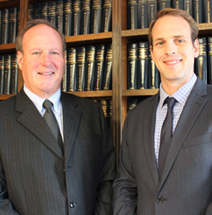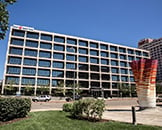Workers’ Compensation Benefits
The federal Workers’ Compensation Act and state statutes provide benefits to employees. Under most statutes, employers are required to carry workers’ compensation insurance for employees to protect them in case of injury. A work-related injury or illness is covered by workers’ compensation insurance regardless of fault or negligence of the employer or another party. Also, when an employee accepts workers’ compensation benefits, he or she gives up the right to sue the employer for injuries sustained. An exception would be in cases where the employer intentionally caused the employee’s injuries or otherwise acted in a criminal manor. In these types of circumstances, employees may have a claim against their employers in addition to receiving workers compensation benefits for their injuries. The employer’s workers’ compensation insurance policy also gives the employer peace of mind against defending employee injury claims.
If an employee is injured while working and then files a workers; compensation claim, the claim may be paid to the employee by several means depending on the type of insurance the employer carries. The insurance may depend on the statutory requirements that apply in the injured party’s jurisdiction. Some examples of different types of insurance may be a self-insured employer, a private insurance company or a government controlled insurance fund (which employers must pay into). Insurance coverage for workers’ compensation benefits may also cover a variety of injuries, including medical care, future medical treatment, lost wages, loss of future earning capacity and death benefits (where applicable). Additionally, under most statutes, the employer must pay the employee’s workers’ compensation insurance premiums, which are based on the employee’s yearly earnings.
Workers’ Compensation Benefits Coverage
Injuries sustained during the course of employment may be due to accidents that occur on the job, or illnesses that are related to the occupation. Employees are entitled to workers’ compensation benefits whether the injury is an accident or disease; however preexisting conditions are generally not covered by workers’ compensation benefits. The benefits provided to workers will vary depending on the type of injuries suffered, the severity of the injury and the jurisdiction you are in. Many state statutes specify a period of time in which workers’ compensation benefits may be paid to injured employees. Most commonly, health care is provided for immediate/emergency care and for rehabilitation. In some jurisdictions, when the injury stops improving it may be considered permanent and workers’ compensation benefits no longer apply or will not be paid to the employee.
In addition to health care, workers’ compensation benefits may also include payment for lost wages (temporary or permanent), disability benefits (temporary or permanent), payment for any medically necessary medical devices (immediate and future), vocational rehabilitation or retraining, mental or emotional harm (in some jurisdictions) and death benefits to loved ones of a deceased employee. The types of benefits an injured employee may receive depend on many factors. It is important to speak to an attorney in your jurisdiction who is knowledgeable in workers’ compensation law, to discuss your circumstances and learn about your legal options.
Preparing to Meet with Your Personal Injury Attorney
To read and print out a copy of the checklist, please follow the link below.
Preparing to Meet with your Personal Injury Attorney
You can download a free copy of Adobe Acrobat Reader here.
Copyright © 1994-2011 FindLaw, a Thomson Reuters business
DISCLAIMER: This site and any information contained herein are intended for informational purposes only and should not be construed as legal advice. Seek competent counsel for advice on any legal matter.







